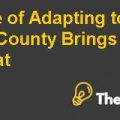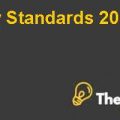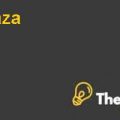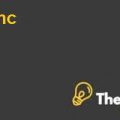Deborah Jamieson and the University College London Case Study Solution
Role of organization in Culture Play:
The organization had been working well in providing its services to the patients but the staff hired in the healthcare system of the University College London was not well trained. The management of the hospital was not focused on its staff’s efficiency in work. There were a large number of employees working in different departments of the hospital, categorized on the basis of their particular concerns such as nurses, midwives, and technical staff members etc.
The surgeons were superior in the entire hospital system due to which the lower staff was facing the fear of devaluation, and was less encouraged, and didn’t have enough confident to do proper assessments of the patients. Hence, the services provided by the nurses to the patients were not reliable. Due to the lack of the training facilities of the staff in the hospital.
The main reason behind the lacking of the communication between the management and employees was the belonging of the staff members to different countries differential, which meant that there were less native staff members in the hospital,and the staff members also had different cultures and traditions. This imposed an image of dissatisfaction of the patients towards the services of the organization.
On the basis of culture differentiation of the staff members in the University College London Hospital, it decided to increase the level of trained staff Deborah – the advanced practitioner recruited by the management of the University College London had started taking measures to let the staff be expert in what they do. For this purpose, the education department of the hospital estimated the number of nurses working in the Day Surgery for the development of training program on the topic of Theatre and Recovery. Additionally, the nurses were trained on the basics of the Theatre and Recovery of the patients, which significantly resulted in the improved skills of the nurses on pre-assessment of the patients before the surgical operations.
The two day training program for the nurses included the recruited staff of the clinic working in different dimensions. The course was mainly focused on the clinical examination and pre-operative assessment introduction. To let the staff be aware of the training program, it was advertised by using the email system of the organization, and the discussion in the meetings. All the nurses working in different departments of the hospital were encouraged to attend the training program of Theatre and Recovery. The motive behind the session of nurse training was to encourage the assessors who assessed the pre-operative assessment of the patients in order to build their skills of clinical examination of the cardiovascular system and respiratory system. This led to the development of assessing the patient’s airway, neck and head abilities to function with the provision of chances to improve their skills at higher level.
The session of training involved the practical performance to show the nurses that how to take clinical examination, and how to take the history of patient’s health. For instance to demonstrate the nurses well; they were sent to attend the venepuncture course in order to teach them and certify them to take patient’s blood. Each nurse was directed to perform the practical individually without being dependent on anyone’s assistance. However, the nurses of senior staff were also provided with additional courses of management for developing their leadership qualities.
The argument on the training program of the nurses was raised by many of the doctors of the hospitals. They believed that a two day training session was not enough to train anyone. It takes many years to make oneself capable of performing a task efficiently. When Deborah stated that the nurses were now capable to perform minor surgeries, it was found to be too difficult for the doctors to digest.
The debate over Deborah statement continued, and the doctors had doubts in trusting the abilities of the nurses to perform the pre-operative assessment efficiently, and there was a possibility that the nurses might detect the medical problem of the patient during the assessment of clinical examination.
It was then explained by Deborah that although the nurses were now able to hear the sound of heart and lungs, but this did not mean that the nurses were equivalent to the specialized doctors working in the hospital.
With respect to time, as the practice was continued, the doctors realized that initially when nurses were not well skilled in their pre-operative or clinical examination assessment there had been greater number in the cancellation of surgical operation, which were now reduced. This provided the patients as well as the doctors with satisfied assessment by the nurses. This assessment was now done by the nurses two to three weeks prior to the surgical operation being scheduled, which helped in better analysis of the patient’s medical condition, and the determination of whether the patient is ready for the surgical operation or not.
Although, the nurses had been working well, but the training was proved to be quite helpful to the nurses as they were now able to perform multiple tasks, and were not limited to just a single task. Thus, this program was appreciated by each member of the hospital and also increased the trust and the satisfaction of the patients with one step solution services as well as trained and skilled staff.
Thus, the organizational management in collaboration with the efforts of Deborah significantly benefited the staff members as well as the patients. A number of steps were taken under consideration, which were performed by the collaborated efforts of the entire management of the University College London Hospital...............
This is just a sample partical work. Please place the order on the website to get your own originally done case solution.













